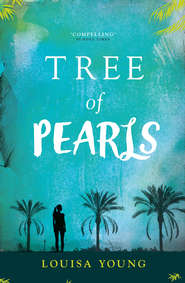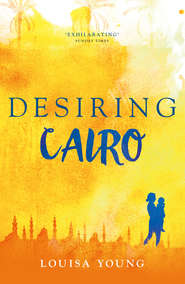По всем вопросам обращайтесь на: info@litportal.ru
(©) 2003-2024.
✖
Devotion
Настройки чтения
Размер шрифта
Высота строк
Поля
Peter leaned forward, the sun warming his shoulders, his feet like pale tenuous fish in the water.
‘Riley!’ he called. But Riley was underwater. Hooting and sploshing and gasping, ‘Riley!’ Peter yelled, and caught his attention as he surfaced again. ‘Come here. I have something to tell you.’
When Mabel Zachary met Peter Locke for the third time – well of course, it wasn’t the third time. It felt like the third time, because it was the third episode. Even as she saw him walk into the shop that dingy November morning, she knew that this was what it was going to be.
He came in, confused slightly by some interchange between his gloves and the door handle, taking off the gloves (soft leather, black, gentlemanly), and looking up. And looking up he saw her, and seeing her, he gave her a mild, surprised, enchanting smile.
And immediately she thought: Do I want this? Am I ready? And then it was already happening.
She saw the ghost of the charm he had had in 1918, when they had first met at the Turquoisine, when everyone was crazy and drunk, and he no crazier nor drunker than the rest of the crowd, just more elegant and more polite and more understanding of the deep sorrow at the root of it all. She saw too the hunger he had had in 1919, when they had run into each other on Chelsea Embankment, and he had been so drunk for so long that after a few weeks she had had to extricate herself from his chaotic ways, and retreat, and leave him to it.
And now, because it was 10 a.m. and twelve years later and he was clean, sober, shaven, upright, looking younger than she had ever seen him look, and smiling, she knew that the involvement of drink was no longer the entangling imperative it had been before, and she smiled back.
‘Hello,’ he said. His blue eyes were clear: no misery, no bovine defiance, no shame glittering in their depths.
‘Hello,’ she said. And then she was almost embarrassed, because something in her really quite guarded heart was simply melting, melting away, at the sight of him looking well, and being here, smiling at her, and saying hello to her, in his voice.
‘Do you take a lunch break?’ he said, just like that.
‘A half hour,’ she said, ‘at twelve thirty.’
‘Perhaps you could leave your job,’ he said, and he may have been serious, but she started laughing and said ‘No’, in a gentle and affectionate way.
‘I’ll have to wait, then,’ he said. ‘Would it get you into trouble if we were to chat?’
‘It’s quiet,’ she said. ‘Of course if a customer comes, or if Mr Moores comes in—’
‘Oh but I am a customer!’ Peter said. ‘Show me all your latest American imports. Tell me what is good. What are you listening to? And who are you singing with? What news of Mr Sidney Bechet? Florence Mills? And why are you working here? You are still singing, tell me you’re still singing …’
She told him she was still singing. She’d just finished a run in Porgy and Bess at the Theatre Royal, chorus, but on stage with Paul Robeson! She told him she had recorded, with some of the guys from the show’s orchestra, and they had a band now. Of course he wanted that record. She brought it to him: there she was on the cover, smiling her huge high-cheekboned smile, big eyes gleaming, wearing a feathered little thing on her head. She looked cool and hot at the same time. On the back she was described as ‘New York’s Newest Singing Sensation’, which was quite funny, as she had been in London since she was fourteen. They laughed about that. She told him she worked three days a week at the shop, and that it was great to get to hear all the new records early. (She didn’t tell him that before Porgy and Bess, or Porgy and Bless, as she secretly referred to it, she had been working at the shop six days, working bars and singing in the evenings, or that before Mr Moores had offered her the job in the shop she’d been cleaning houses too.)
He admired the picture. ‘I have never had a photograph of you,’ he said, and she said, ‘Well,’ and he said, ‘What, why would I? You know why I would. Don’t you?’ And she was about to say ‘I’m just a girl’ when she realised she mustn’t because he would say something and she would say something and suddenly they would be in a place neither of them were prepared for.
She turned back to the shelves behind her and said: ‘New Orleans? Chicago?’
‘Chicago, I think,’ he said.
‘Jazz or blues? I have Bessie Smith’s “Black Mountain Blues” here,’ she said. ‘You heard that? Or, the Famous Hokum Boys? “Saturday Night Rub” is the new one …’ She gave them to him. ‘Have you heard the new stuff coming out of New York? Here—’ She passed him another disc: Bix Beiderbecke, ‘At the Jazz Band Ball’. ‘Cornet player,’ she said. ‘With Adrian Rollini on bass sax. He’s something else. You know even Louis Armstrong has moved to New York now?’
‘I haven’t heard anything for a long time,’ he said. She wondered if he’d been avoiding jazz as a way of avoiding drink, and looked at him with that thought in her eyes.
He blinked at her and said, ‘But you’d have seen me, if I’d been going to any clubs.’
There was a record player behind the counter; he handed back ‘At the Jazz Band Ball’, and she put it on. The music started straight in, gay and ghostly, something mournful in the rhythms and the chords … As she turned back he was looking at her as if he were going to ask her to dance.
Oh my Lord, dear Lord, she thought. Peter was the only white man she had ever been to bed with. Her mother didn’t hold with white men.
He did, he held his arms up in a ‘dance with me?’ position, and raised his eyebrows.
She shook her head and smiled. ‘Need to stay this side of the counter,’ she said. Her heart was going pitter-pat.
We’ve leapt up some ladders and down some snakes in the past twelve years and you don’t even know, she thought. But the music made her shrug her shoulders and swing her hips a little. She couldn’t not. And she was very pleased to see him.
They played records and talked about jazz and blues for two hours: Duke Ellington, Fletcher Henderson, Coleman Hawkins, Lead Belly, Big Bill Broonzy. Sidney Bechet was in Berlin, she’d heard – he’d been deported! No, twice! From London in, what, ’22? And then from Paris, there’d been a shooting at Bricktop’s in Montmartre – well, yes, actually she had been there – not performing that night, no, but Henry Crowder had been in on his way back from Venice, with – well, anyway, Sidney was in Berlin, was the word. But there were no new recordings. Had Peter heard the 1923 tracks, with Louis Armstrong? ‘Texas Moaner Blues’? Ooh, she’d get those out for him … She broke off from time to time to serve customers, and then he watched her, and a smile lingered, at her square shoulders, her gentleness, her courtesy and quiet enthusiasms.
‘Your voice hasn’t changed at all,’ he said. ‘It’s no more English. Does it still get more American when you’ve relaxed?’
‘Uh huh,’ she said. ‘Or excited.’
‘Or on stage?’
She smiled.
Then he bought all the records she had shown him, and took her to the Gay Hussar for the fastest goulash ever known. She told him not to come back with her, but he was waiting outside at five thirty, and only by agreeing to his coming along that evening could she get rid of him for a couple of hours before she started work.
Mabel was living in two rooms at the top of a narrow rickety Georgian house in Lexington Street, Soho. All afternoon she had been thinking, and she was thinking now, heading over there, and indeed she had been thinking for twelve years. But now a great big snake had been slid down, and she had to make her decisions. She had a half-formed song in her mind, and as was her habit she was working through it as she walked, because Lord knows when she’d be able to sit down at a piano and finish it. The melody was bluesy but pure, E minor, and the lyric was a Bible verse: Takeye heed, watch and pray, for ye know not when the hour is … She’d assumed it was about death, and maybe it was, but yeah, it could be about anything. Ye know not when the hour is.
The tall black door was open onto the pavement and Reginald, the Jamaican trombone player who lived below her, greeted her as she slid past him into the shaded hall. She smiled, and gave thanks that she was no longer provoked into hunger and envy by the frying smells dripping down the stairs from his room. The goulash had been huge – and they had been sitting in a dark corner, so when Peter had left the table she had shamelessly taken the larger pieces of meat from her bowl, wrapped them in her smooth white napkin, and stuffed the package, fraught with the potential to leak gravy, into her bag. She didn’t really need to do that sort of thing any more, but she couldn’t abide waste. She was sorry if the loss of the napkin would cause trouble for any of the staff. She would bring it back. The meat she knew did not count as theft, as it was Peter’s gift. He would, she thought – would he?
Вы ознакомились с фрагментом книги.
Приобретайте полный текст книги у нашего партнера:
Приобретайте полный текст книги у нашего партнера:











